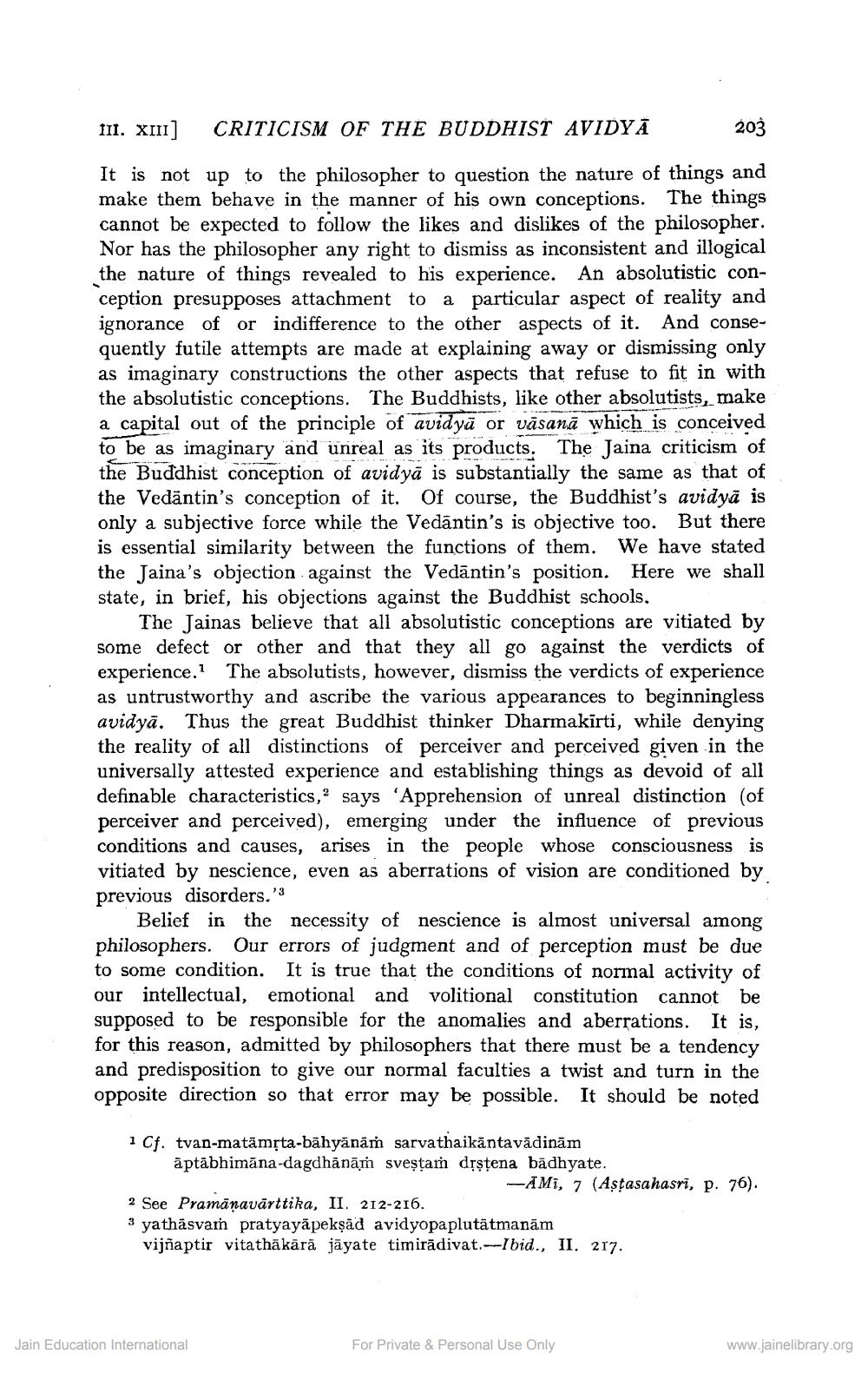________________
III. XII]
CRITICISM OF THE BUDDHIST AVIDYA
203
It is not up to the philosopher to question the nature of things and make them behave in the manner of his own conceptions. The things cannot be expected to follow the likes and dislikes of the philosopher. Nor has the philosopher any right to dismiss as inconsistent and illogical the nature of things revealed to his experience. An absolutistic conception presupposes attachment to a particular aspect of reality and ignorance of or indifference to the other aspects of it. And consequently futile attempts are made at explaining away or dismissing only as imaginary constructions the other aspects that refuse to fit in with the absolutistic conceptions. The Buddhists, like other absolutists, make a capital out of the principle of avidyā or vāsanā which is conceived to be as imaginary and unreal as its products. The Jaina criticism of the Buddhist conception of avidyā is substantially the same as that of the Vedāntin's conception of it. Of course, the Buddhist's avidyā is only a subjective force while the Vedāntin's is objective too. But there is essential similarity between the functions of them. We have stated the Jaina's objection against the Vedāntin's position. Here we shall state, in brief, his objections against the Buddhist schools.
The Jainas believe that all absolutistic conceptions are vitiated by some defect or other and that they all go against the verdicts of experience. The absolutists, however, dismiss the verdicts of experience as untrustworthy and ascribe the various appearances to beginningless avidyā. Thus the great Buddhist thinker Dharmakīrti, while denying the reality of all distinctions of perceiver and perceived given in the universally attested experience and establishing things as devoid of all definable characteristics, 2 says 'Apprehension of unreal distinction (of perceiver and perceived), emerging under the influence of previous conditions and causes, arises in the people whose consciousness is vitiated by nescience, even as aberrations of vision are conditioned by previous disorders.'3
Belief in the necessity of nescience is almost universal among philosophers. Our errors of judgment and of perception must be due to some condition. It is true that the conditions of normal activity of our intellectual, emotional and volitional constitution cannot be supposed to be responsible for the anomalies and aberrations. It is, for this reason, admitted by philosophers that there must be a tendency and predisposition to give our normal faculties a twist and turn in the opposite direction so that error may be possible. It should be noted
1 Cf. tvan-matāmsta-bāhyānām sarvathaikāntavādinām āptābhimāna-dagdhānām sveştam dsstena badhyate.
--AMi, 7 (Astasahasri, p. 76). 2 See Pramāņavārttika, II. 212-216. 3 yathāsvam pratyayāpekşād avidyopaplutātmanām
vijñaptir vitathā kārā jāyate timirādivat.-Ibid., II. 217.
Jain Education International
For Private & Personal Use Only
www.jainelibrary.org




